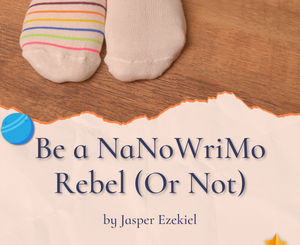CRAFT: What does Author Convenience and Aristotle have to do with each other?
Welcome to the weekly series on craft. We authors need to write excellent books for our readers to enjoy. This week’s guest author on craft, Kat Duncan, waxes philosophical and practical. Check out her upcoming year-long novel writing course that begins in May at Savvy Authors. We’d love to hear your thoughts on how we craft excellent books. Thanks!
^*^
Authors have a job to do and they have to fool readers in order to do it.
In good writing, the author seems to disappear and the reader gets lost in the story. It’s as if the story is telling itself.
Yet author convenience, or author intrusion, breaks through the story veil and doesn’t let the reader get caught up in the story.
As author we use tools and techniques to help the readers can get lost in the story. Unique characters hook some readers, interesting settings hook others, but most readers are hooked by two things: plot or emotion.
Plot seems like an easy way to hook readers without intruding on their reading experience. If there’s lots of action in the story, such as in a thriller, mystery or suspense, the reader keeps reading to see what happens next.
Emotion is a bit trickier. Nobody wants to read about a character who’s constantly bawling or shouting, nor do readers get all that interested in characters with unpredictable mood swings. Plus, it takes time to set up situations where readers would look forward to an emotional payoff. But that’s what most romance readers, and most readers, are looking for.
Wouldn’t it be great if authors could learn some techniques that will help them avoid the aura of author convenience?
Enter, Aristotle. Remember Aristotle? He’s one of the Ancient Greeks, along with Plato and Socrates, whose writings about every topic you can think of were the foundation of Western-style thinking. Good thing he liked going to the theatre because he wrote about that. Back then there was no such thing as a novel, but what Aristotle wrote about plays can be applied to writing novels.
Some of the more interesting things Aristotle said were:
Show rather than tell — It should be all about the drama, not about just giving the fact-like details of events. Narration simply tells what happened, while drama makes a statement about what might happen. It’s that might that most readers cling to.
Why? Because, if they can relate to it they will sense that it could happen to them and they will be afraid. Fear is an emotion. Score!
Lesson: limit narration and make it all about the drama of what might happen.
Plot versus character — Many plot-driven novels have stereotypical characters yet they are successful. My friend E.W. calls these guy-books. Many character-driven novels have fans who love the characters, but are disappointed in the plot clichés. Would it make sense to devise a plot-driven novel and then create awesome characters to live the plot? Bingo! Wondering what Aristotle had to say about plot? Read and learn:
The beginning needs an incentive moment – the causes of this moment are less important than its effects. The moment needs to be external and preferably as general as possible. External because it’s easier for readers to be sympathetic when some outside force ruins the day. General so as to reach as many readers as possible.
Lesson: emphasize the effects of what happened not its origins.
The middle needs a climax — the plot is a chain of cause-and-effect events that leads to a climax. The author can conveniently choose the events, but they should ratchet up toward a nasty climax that makes the reader worry about whether the character will pull through. This is easy, just think of the worst possible thing that could happen to your character. Think hard. Be brutal. Be ruthless. Okay, if you have trouble with that, then think about what would make the reader feel really sorry for your character.
Lesson: use more drama, make things worse and worse and worse for the character.
The end needs a resolution — readers don’t like wishy-washy endings. They like closure. The ending should solve the problem that started with the incentive moment and relieve the tension the reader felt at the climax. Aristotle says the end result is an emotional catharsis. He thought this was good for the body and soul. A kind of purging of strong emotions that would lead to thoughtful musing about one’s own life and situation.
Lesson: purge through emotion.
A little about me:
I write romantic suspense for The Wild Rose Press, and am also an Indie author of romantic suspense and historical romance. I love sharing my knowledge with others and give online classes in writing fiction.
Thanks for stopping by. Share your comments here today and check out my year-long novel writing course that begins in May at Savvy Authors. You can also find me on the web at http://www.katduncan.net/writeabout








very good post and so true.
Hi Kim! Thanks for stopping by. I’m glad you enjoyed the post.
Kat,
This was a great post. I will check into your class. Thank you for sharing.
Happy writing.
Micole Black
Hey Kat! I really enjoyed this post! The lessons you mentioned make complete sense, and I can relate these to recent books I have read, for sure. I was also very pleased to say that I can confirm I have applied these to my manuscript and they are all in check! WOO HOO! 🙂
I would love to take your class, but I am already enrolled in another year long course right now. Maybe I can catch the next one. 🙂